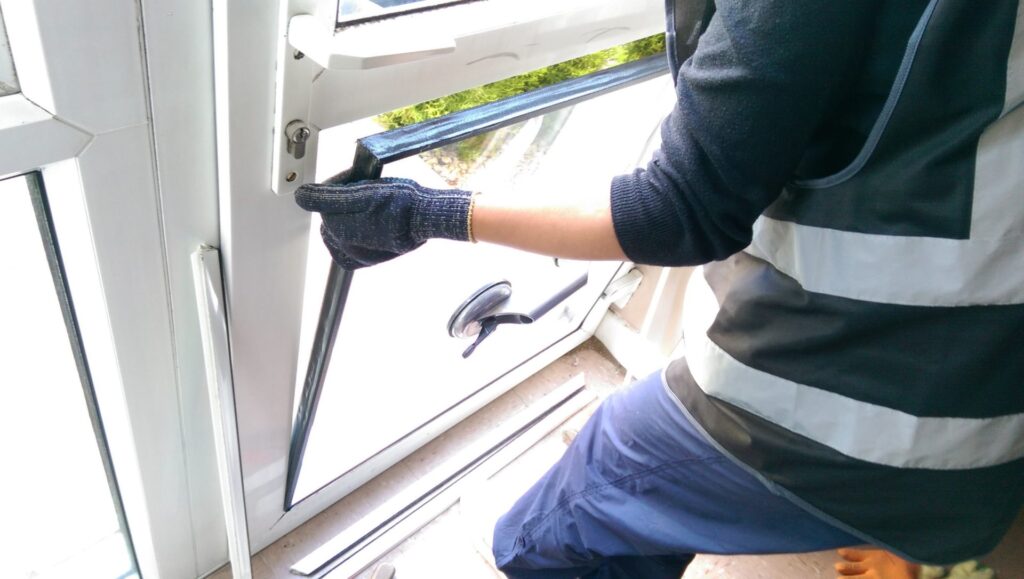Be On The Lookout For: How Window Pane Repair Is Taking Over And What Can We Do About It

Understanding Window Pane Repair: A Comprehensive Guide
Window panes are essential elements of our homes, providing transparency for views while safeguarding versus external elements. Over time, however, wear and tear, weather, and accidental damage can leave window panes cracked or broken. When confronted with such concerns, comprehending the window pane repair process becomes important for house owners. This article explores the various aspects of window pane repair, consisting of methods, tools, and often asked questions.
When is Window Pane Repair Necessary?
Before diving into the repair approaches, it is essential to identify when a window pane requires immediate attention. Here are some signs that indicate a repair may be essential:
- Cracks: Cracks, whether little or large, can compromise your window's structural integrity and energy effectiveness.
- Shattered Glass: If a window pane is entirely shattered, it postures a safety risk and needs instant replacement.
- Foggy or Cloudy Appearance: This usually suggests seal failure in double-glazed windows, and while it may not need instant attention, it can cause additional wear and tear.
- Drafts: If drafts can be felt near the window frame, it may recommend that the sealing around the glass has actually deteriorated, hence requiring repair.
Types of Window Pane Repairs
The repair approaches depend on the level of the damage and the kind of window. Here are the most typical types of window pane repairs:
| Damage Type | Repair Method |
|---|---|
| Small Cracks | Epoxy or UV adhesive application |
| Big Cracks | Replacement of the entire pane |
| Shattered Glass | Complete pane replacement |
| Seal Failure | Insulating glass replacement or resealing |
| Drafty Windows | Weatherstripping or caulking around the edges |
1. Epoxy or UV Adhesive Repair for Small Cracks
For shallow damages such as little fractures, using an epoxy or UV adhesive can efficiently seal and bring back the integrity of the glass. This technique is fairly simple and can be carried out without professional help.
Steps to Repair with Epoxy:
- Clean the Area: Remove any dirt or debris around the crack.
- Apply Epoxy: Mix the epoxy resin according to package guidelines and use it to the crack.
- Cure Time: Allow the epoxy to treat according to the producer's suggestions.
- Smooth the Surface: Once cured, sand it down to maintain a smooth surface.
2. Replacement for Large Cracks and Shattered Glass
If a window pane has extensive cracks or is shattered, replacing the whole pane is the most efficient option. This includes more detailed work and may require experts for correct installation.
Actions for Replacement:
- Remove the Broken Pane: Carefully secure the shattered or broken glass using gloves for security.
- Prepare the Frame: Clean the frame from any shards or remaining sealing material.
- Set Up Replacement Glass: Precisely cut a new glass to size and install it into the frame, guaranteeing it is secured effectively.
- Seal the Edges: Use silicone or glazing putty to seal the edges of the pane.
3. Insulating Glass Replacement for Seal Failures
Windows with seal failures might show condensation between panes. Insulating glass replacement, where the whole unit is changed, is recommended for double or triple-pane windows.
4. Weatherstripping for Drafty Windows
If windows are breezy, weatherstripping can be an excellent service. Here's how to do it:
Step-by-step Guide for Weatherstripping:
- Identify Draft Areas: Run your hand along the window edges to identify drafts.
- Choose Weatherstripping Material: Options consist of foam tape, rubber weatherstripping, or silicone sealant.
- Measure and Cut: Measure the window edges and cut the weatherstripping to size.
- Install: Apply the weatherstripping along the edges, pushing it strongly to guarantee adhesion.
Tools and Materials Needed for Window Pane Repair
Before commencing any repair, it's vital to collect the essential tools and products:
Basic Tools:
- Screwdriver
- Glass cutter
- Pliers
- Energy knife
- Putty knife
- Sandpaper
Materials:
- Replacement glass (if needed)
- Epoxy or adhesive glue
- Silicone sealant
- Weatherstripping material
- Glazing putty
Frequently Asked Questions (FAQs)
1. How do Repair My Windows And Doors understand if my window is worth repairing or if it needs replacing?
If the damage is small, such as small cracks or drafts, repairs are typically sufficient. For extreme damages like shattered glass or substantial seal failures, replacement is normally more effective.
2. Can I repair window panes myself?
Yes, numerous window pane repairs, specifically small cracks or weatherstripping, can be done as DIY jobs. Nevertheless, for significant damage or numerous panes, consulting a professional is advisable.
3. The length of time does a window pane repair last?
Properly fixed window panes can last several years, depending upon the products utilized and the level of the damage.
4. What can I do to avoid damage to my window panes in the future?
- Frequently check windows for indications of wear.
- Keep windows tidy and unobstructed.
- Use protective steps against harsh climate condition.
Window pane repair is an important aspect of home maintenance that guarantees the durability and effectiveness of windows. Whether going with DIY approaches or employing specialists, understanding the types of repairs and suitable tools can make the procedure smoother. By addressing issues quickly and efficiently, property owners can preserve their homes' aesthetic appeal and energy efficiency while guaranteeing safety.

